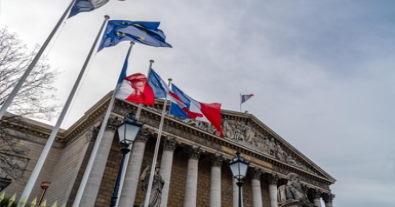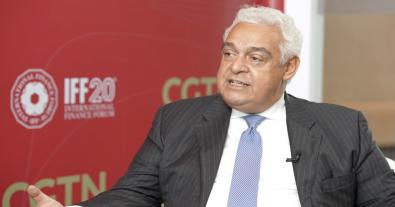Five Facts to Know: The Economics of Turkey's Runoff Election
The first round of the Turkish presidential election ended on May 14, 2023 without a winner. Turkish President Recep Tayyip Erdoğan surprised pollsters by earning 49.5% of the vote against challenger Kemal Kılıçdaroğlu, who received 44.9%, and Sinan Ogan, who received 5.2%. Erdoğan’s strong showing was the biggest surprise of the election, as Kılıçdaroğlu led an unprecedentedly unified coalition of six parties that led the polls ahead of the election. As none of the candidates received the requisite 50% of the votes to claim victory, a runoff election is scheduled for May 28 between Erdoğan and Kılıçdaroğlu. This election has regional and global economic implications, as Turkey—the world’s 19th largest economy—is in the midst of an unprecedented economic upheaval. Facing mounting inflation levels as high as 88% and currency devaluation, Turkish citizens have found their purchasing power and overall quality of life in decline. Relatedly, foreign investors have all but abandoned the Turkish market, with less than 1% of Turkey’s domestic government debt owned by foreigners. Whoever wins the upcoming runoff election will be charged with pulling Turkey out of this historic economic decline, improving the quality of life for the Turkish populace, and regaining foreign investor confidence.
Here are five facts to know about the Turkish presidential election runoff:
1. Economics and disaster relief top the ballot
President Erdoğan’s economic and disaster relief policies are center stage in the 2023 Turkish presidential election. As a result, this election poses the greatest threat to Erdoğan’s rule in his more than 20-year tenure. Since 2021, Erdoğan has vigorously worked to implement what his administration refers to as a “New Economic Model.” This policy has prioritized ultra-low interest rates in the face of mounting national inflation. Consequently, the Turkish lira fell to 19 against the US dollar in March 2023. Inflation rates also reached a record high of 85% in October 2022. As a result, the Turkish population has witnessed a steep increase in the cost of living since 2021.
Turkey’s economic decline was exacerbated in February 2023 following two massive earthquakes that devastated the state and its infrastructure. The World Bank estimates that damages from these earthquakes amount to roughly $34.2 billion, and the UN estimates 2.6 million displaced are still living in tent cities. The federal government’s slow response to the catastrophe, coupled with poor coordination with local relief agencies, drew significant criticism from the Turkish populace.
2. Erdoğan’s economic platform consists of promises without a plan
Erdoğan’s economic platform has been defined by the executive presidential system, which Erdoğan imposed in 2018. This system grants him the authority to appoint or remove any government official by formal decree, which has led to him effectively sidelining the central bank and imposing his own economic agenda. To date, this has meant reductions in interest rates in an effort to spur economic growth and, as Erdoğan insists, combat inflation.
In advance of the 2023 elections, Erdoğan released an economic roadmap that attempted to outline his administration’s economic agenda for the next term. In it he emphasizes lower interest rates and efforts to boost economic growth through increased exports and expanded production centers throughout the country. He also aims to grow the Turkish economy by 5.5% from 2024 to 2028 and reach a GDP of $1.5 trillion by 2028. That said, Erdoğan’s economic roadmap provided little in the way of actionable plans or concrete steps. As a result, these objectives were met with widespread skepticism, as Erdoğan has made similar pledges in previous elections.
For those in the electorate looking for indications of substantive policy shifts, the rumor of former Turkish finance minister Mehmet Simsek’s return to Erdoğan’s administration was welcome news. Simsek served under Erdoğan from 2012 to 2018 and was known to champion sensible, investor-friendly policies aligned with more orthodox economic thinking. That said, Simsek was quick to publicly deny that he would be returning to government. In response to that news, concern mounted from the Justice and Development Party (AKP) that a new Erdoğan administration would lack economic credibility among the electorate.
3. Kılıçdaroğlu's economic platform charts a return to orthodoxy
Erdoğan’s challenger, Kemal Kılıçdaroğlu, is the leader of the Republican People’s Party. His candidacy was elevated by the “Nation Alliance,” a coalition of disparate political parties united in their opposition to Erdoğan. His style and platform offer a sharp contrast to Erdoğan, as he champions an independent central bank and greater economic transparency. If elected, Kılıçdaroğlu promises to return to “orthodox” economic policies, allow the central bank to raise rates, slow the sale of dollar reserves, and lure back foreign investors. He has also outlined a series of economic development projects that he pledges to implement, should he be elected. These include developing nine special economic zones, 17 agriculture and livestock centers, and 50 production bases. He also emphasized increasing the country’s innovation capacities by investing in research and development and talent training. He pledged an investment target of $123 billion in the first five years and $300 billion in 10 years, with 20% of those funds made with public resources. Other key components of his economic agenda include enhancing the GDP growth to 5.5% by 2027, creating 2.5 million jobs in his first term, and reducing unemployment to below 5% by 2028.
4. Third place runner-up Sinan Oğan's endorsement could determine the outcome
Third-place finisher Sinan Oğan, a far-right Turkish politician, will not participate in the May 28 runoff. That said, Oğan stands to play kingmaker ahead of the runoff election. His endorsement of either candidate could be enough to tip the results in the runoff election. Oğan has not yet done so, clarifying that he will consult with his voter base for their decision in the runoff and emphasizing that he will only endorse a candidate who distances himself from “terrorism.” This has implications for both Erdoğan and Kılıçdaroğlu, as both have aligned themselves with groups Oğan has deemed terrorists. Kılıçdaroğlu’s candidacy was supported by the Peoples’ Democratic Party (HDP), a political ally of the Kurdish Workers Party (PKK), which has waged a 39-year war against the Turkish government. Meanwhile, Erdoğan’s AKP received support from Hüda-Par, which maintains ties to a Kurdish group that targeted the Turkish state throughout the 1990s.
Though both camps are courting Oğan’s endorsement ahead of the runoff election, Erdoğan is a more natural ally of Oğan. Oğan’s staunchly anti-immigration rhetoric and focus on counterterrorism closely aligns with Erdoğan and the AKP. Furthermore, AKP unity will make it much easier for Erdoğan to strike a deal with Oğan, whereas Kılıçdaroğlu will need to balance the objectives of his six-party coalition while courting Oğan’s endorsement.
5. Foreign investors hope for a policy shift
Foreign investors have all but abandoned the Turkish market, driven by concern that Erdoğan will continue his unorthodox economic policies. Erdoğan’s surprisingly strong showing in the first round of elections sent Turkey’s benchmark BIST-100 index plunging 6.4%, as global investors confronted the possibility of Erdoğan prevailing in the upcoming runoffs. Meanwhile, following the first round of the elections, the Turkish lira fell to a historic low against the US dollar. International investors are sending a clear signal that they are not interested in navigating another term of Erdoğan’s economic policies. This trend has borne out over the last decade, as foreign investors have removed roughly $7.3 billion from Turkish equity markets. Less than 1% of Turkey’s domestic government debt is owned by foreigners. Erdoğan has done little to allay the concerns of foreign investors. Ahead of the runoff election, Erdoğan reaffirmed his commitment to lower interest rates should he win another term.
While a victory for Kılıçdaroğlu would suggest a new era of economic policies and central bank independence, foreign investors would likely be leery of the growing pains associated with such an abrupt course correction. To make concrete progress against rising inflation, Turkey would likely need to raise interest rates as high as 40%. The resultant sell-off in the domestic bond market would produce significant losses for foreign investors. While victory for Kılıçdaroğlu would be a clear sign to foreign investors that a new era of fiscal policy is approaching, the road ahead for the economy and foreign investment would remain complicated.










